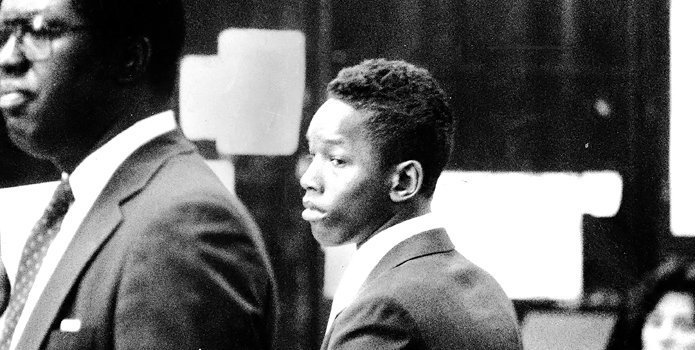Amir here, with my first dispatch from Hot Docs, North America’s biggest documentary film festival.

My friends had parents who were dentists or ran stores. My parents own a strip club.”
So says Shawney Cohen, the director of The Manor, the Canadian film that opens the festival tonight. Advertised with images of the invitingly neon-lit entrance of a strip club and scantily-clad dancers, The Manor seems to have been chosen as the opening night film based on an old adage we know all too well: sex sells. It’s a risky move by the festival’s programmers because anyone going in to buy sex will surely leave the theatre disappointed. Those of us going in not based on the marketing material but on the promise of a great opener had nothing to worry about. The Manor is an intimate family portrait that explores universal themes of familial bonding through a sharp and wryly humorous lens.
Shawney was six years old when his Jewish parents – Roger, a European immigrant, and Brenda, a Torontonian – bought The Manor, a strip club in suburban Ontario with a hotel attached to it. The purchase of the club proved to be a turning point in the life of the Cohen family that, for better or worse, has remained tied to the locale for nearly three decades; and indeed, this tenacious relationship between the Cohens and The Manor forms the core of the film.
Very little of what happens on the stages of the club is captured by Cohen’s camera. The Manor isn’t even passively sexy; it’s actively unsexy. Cohen’s attention is directed at what the audience doesn’t want to see. He’s directed his focus on the all-encompassing impact that the strip club has made on the lives of everyone connected to it. From the concierge of the adjacent hotel – a former stripper at the club – whose overdose throws everyone for a loop to the arrest of one the mainstays at the club – an adopted son figure to Roger Cohen – everyone’s life seems irreversibly affected by their presence at The Manor.

The titular club hence becomes the film’s pivot; its importance not the product of the type of service it provides or the low-key glamour of its performers, but the consequence of the centrality it has for the Cohen family. Shawney, having lived his whole life trying to blend in with others and find normalcy in an unusual situation, sees no reason to glamorize or sensationalize a story that has become the only reality he knows. An hour and a half later, the curiously mismatched family members and their deceptive occupation grows into an intimate reality for the audience too.
Cohen doesn’t sex up his family’s story with sensual strip club lighting and alcohol. The club isn’t a guise under which a family film takes shape. As the story unravels, the impression becomes increasingly stronger that the only thing that forms the familial bond between the Cohens is the club. It is what hooks the family to the environment and often times to each other. Shawney takes a lot of mileage from the contrasting personalities of his family members to prove this point. His mother suffers from an eating disorder that has left her so thin and so weak that her hip shatters after a minor fall; his father suffers from a different eating disorder that has left him so obese he needs surgery to lose weight. His brother enjoys running the show at the club and dating the working girls from time to time; Shawney has felt the urge to leave his whole life. But even at times when they seem to share nothing in common, when marriages are about to crumble and relationships about to be broken, the club, its ownership and its problems bring everyone together.
All of this sounds incredibly personal, and it is; but that level of specificity allows Cohen to tell a universal story through his singular perspective. He questions the identities of his family members with intense scrutiny and asks them to reconsider themselves and their relationships at their most testing moments; and with a unique, dry sense of humor and a keen eye for finding the tender side of any situation, he invites us to do just as much.
 Saturday, April 27, 2013 at 8:00PM
Saturday, April 27, 2013 at 8:00PM 





